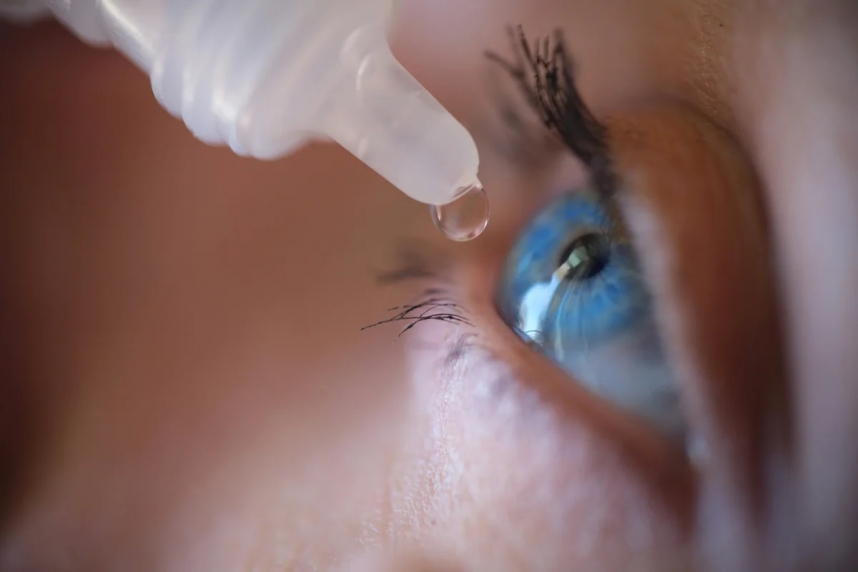
According to data from a small analysis, experimental eye drops may become the first drug treatment for early cataracts.
Presently, no treatment can improve vision in patients whose cataracts are not advanced enough to be surgically removed.
Cataracts form when proteins in the eye's lens break down and clump together, creating a cloudy area on the lens. The C-KAD eye drops from Los Gatos, California-based Livionex, with 2.6% ethylenediaminetetraacetic acid disodium (EDTA) as the active ingredient, penetrate the eye to break up the degraded protein complexes forming the cataract.
"If we can stop (a cataract) before it starts or treat it in the early stages, then it sets an entirely new trajectory in patient eye care," Livionex CEO Amit Goswamy said in a statement.
Participants in the study all had early age-related cataracts, with some loss of contrast sensitivity but normal or only minimally impaired visual acuity. They used the drops four times a day for 120 days, according to a study in the American Journal of Ophthalmology.
Comparing 21 eyes treated with the eye drops and 20 eyes treated with a placebo, the treated eyes had significantly greater improvements in vision - particularly in distinguishing subtle differences in contrast - and in lens transparency, with no serious adverse events, the researchers said.
"Cataract therapy using eye drops has the potential to have a global public health impact, because while cataract surgery is safe, 51% of world blindness is due to cataracts, and there aren't enough ophthalmologists to do cataract surgery, even if it was free," Dr. Roy Chuck of Albert Einstein College of Medicine in New York, a study co-author, said in a statement.